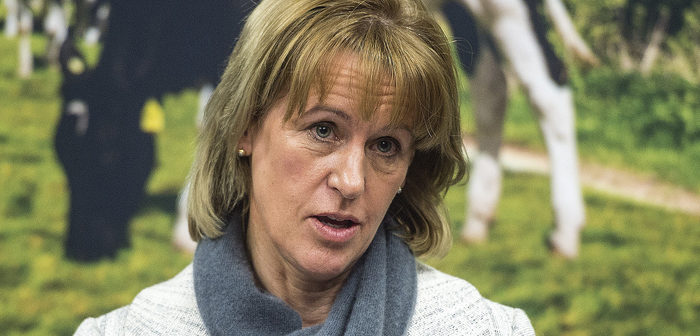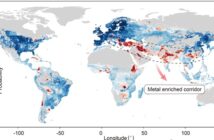The NFU is asking the government and supply chains for greater transparency around the standards associated with imported grain as the UK seeks new trade deals around the world.
The call comes at Cereals LIVE as NFU President Minette Batters joins Defra Farming Minister Victoria Prentis (in a pre-recorded address), Andrew Opie from the British Retail Consortium, Dr Ludevine Pettitin from Cardiff University and Jane King from AHDB, in a session focusing on global trade, Coronavirus impacts and food security.
Mrs Batters will highlight that while UK grain producers are held to account by both regulatory standards and farm assurance standards, there is a significant lack of information about the standards to which imported grain is produced to meaning we could see a trade policy that allows grain to be imported into the UK which has been produced using chemicals that are illegal here.
Speaking ahead of the event, Mrs Batters said: “Over the past 10 years grain imports into the UK have almost doubled, yet our own farmers have no information about how the product they are competing against has been produced. This has caused a serious knock in confidence for British grain producers.
“As we embark on new trading opportunities around the world, it is essential that a level playing field is established. Many farmers have been struggling to grow key crops since the ban of products like neonicotinoids and chlorothalonil, and now face a double whammy of a trade policy that allows food into the UK which has been produced using the very products that are now illegal here. Yes, the domestic grain market needs imports to meet public demand, but transparency is crucial if we are to ensure British producers aren’t undercut by sub-standard imports.
“We also have to consider our climate change responsibility. British farmers are on the front line of climate change –much of this year’s crops have already been impacted by the extremes of severe flooding closely followed by the recent dry weather.
“The government needs to show it is serious about tackling our greenhouse gas footprint, not just on what we produce, but on what we consume. Transparency around food imports is the first step to ensuring we don’t undermine our ambition to be world leaders in sustainable, nature-friendly food.
“Considering the impacts of COVID-19 and the long term challenges of climate change, we must reflect on food supply both domestically and around the world. We want our farmers and the public to be confident that the food available on supermarket shelves has been produced to world-leading standards, no matter where it has come from.”




